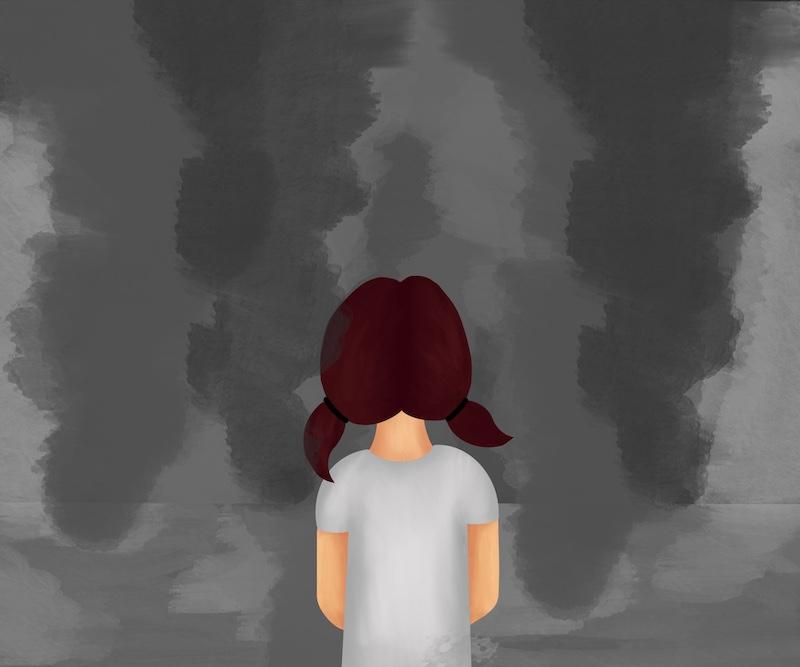
“You Feel It Just Below the Ribs,” by Jeffrey Cranor and Janina Matthewson, released Nov. 16. The book is a fascinating look at conspiracies, unreliable narrators and the extreme lengths humanity will go to to avoid conflict. The authors also co-write the “Within the Wires” podcast, which is in the same universe as the novel.
The book is the fictional autobiography of Dr. Miriam Gregory, and recounts her time growing up during The Great Reckoning, a massive destruction that killed more than a quarter of the world’s population. She then has to live with the New Society that rises from the ashes of the war. Dr. Gregory becomes an important psychologist as she researches a process that manipulates the human mind, which the New Society uses to detach the bonds of traditional families.
This unreliable narrative provides a fascinating uneasiness to the reader as they are forced to decide who to believe. Right off the bat in the “Introduction,” it tells us to approach the manuscript with a level of skepticism. Dr. Gregory mentions many people who are dead, so verifying their parts of the narrative is impossible. That, coupled with the Yuriatin Press, the group that found and printed Dr. Gregory’s manuscript, constantly questioning why the New Society would be hiding details, makes it hard not to question the integrity of Dr. Gregory’s story.
The novel raises an interesting question about how far humanity is willing to go to avoid conflict. The Great Reckoning destroyed so many lives that —when the world starts to get its footing— it’s so afraid of being hurt again that it severs the thing that made humanity so great in the first place: connections. Connecting to other people is seen as a weakness and flaw that can potentially start another world-dominating war. They jump at the opportunity to destroy those connections forever, and brutally punish anyone that breaks the mental walls they put in place.
Dr. Gregory is a fascinating character to follow. Throughout the story, my feelings about her constantly shifted from pity to frustration and back again. In some aspects, her work spiraled out of control and was used for horrific purposes without her permission. On the other hand, she ignored the warning signs until it was too late, and in the end, ran away from the consequences and hid for the rest of her life. It makes the reader wonder why Dr. Gregory wrote this manuscript in the first place. Is it guilt, or is she simply driven to confess before she passes?
One thing that initially threw me off was the footnotes, included to “correct historical facts she related erroneously, omitted, or even made up entirely.” Having to check footnotes to provide context is not something I was used to. As the novel went on however, the footnotes served as more than world building. These footnotes, done by the Yuriatin Press, show a clear bias against Dr. Gregory and question the legitimacy of her claims. They make the reader wonder whether any of what Dr. Gregory says is true, or if she is just a conspiracy-theory obsessed old woman.
While listening to the “Within the Wires” podcast is not necessary for understanding the novel or getting the emotional impact it leaves, I recommend listening to at least season one. If you listen before reading the novel, it adds to the growing feeling of dread in the novel. As you read along and start to recognize concepts and places from the podcast it adds to the growing sense of dread. Alternatively, if you listen to the podcast after you read, you will gain a different and more in-the-moment perspective. However, even if you choose not to listen at all, the narrative is still just as engaging and heart-wrenching.
“You Feel it Just Below the Ribs” is a fantastic read for anyone that is a fan of dystopian alternate realities and possibly unreliable narrators. The novel makes readers question everything and keeps you on your toes. The story is heartbreaking and thought-provoking, and is a showcase of the fantastic world-building talents of its authors. Whether the manuscript is truthful, or whether Dr. Gregory is the unreliable narrator and conspiracy theorist the Yuriatin Press makes her out to be, is completely up to the reader. But the one thing I’m sure all readers can agree on is the book’s emotional end will strike you just below the ribs.
Edited by Elise Mulligan | [email protected]